PSA Group and General Motors have announced their agreement which will see the French manufacturer acquire the Vauxhall and Opel brands.
The deal, expected to cost £1.9 billion, will see PSA become Europe’s second largest car manufacturer, the two brands adding annual revenue which topped £20 billion in 2016.
But with GM having not made a profit in Europe since 1999, the agreement is expected to result in severe cost-cutting within the Vauxhall and Opel operations.
A statement issued by PSA Group confirmed: “The transaction will allow substantial economies of scale and synergies in purchasing, manufacturing and R&D.
“Annual synergies of €1.7bn (£1.47bn) are expected by 2026 – of which a significant part is expected to be delivered by 2020, accelerating Opel/Vauxhall’s turnaround.”
GM currently employs a 35,000-strong UK workforce, including 23,000 in its retail network, 300 at a customer contact centre in Luton and 7,000 in its supply chain alongside the 4,500 employed at factories at Ellesmere Port in Cheshire and Luton in Bedfordshire.
Prime Minister's "close contact"
In a statement issued by the Department for Business, Energy and Industrial Strategy, Business Secretary Greg Clark said:"Vauxhall has a long history of success in this country and we are determined to see that continue. The Government welcomes the assurance by PSA that they will respect the commitments made by GM to Vauxhall's employees and pensioners.
"We will continue to engage and work with PSA in the weeks and months ahead to ensure these assurances are kept and will build on the success of both sites for the long term.
"The Prime Minister and I have been in close contact with the PSA Group and General Motors and they have been clear this deal is an opportunity to grow the Vauxhall brand, building on their existing strengths and commitments.
“I have set out the Government's determination to make the UK one of the world’s most attractive locations for innovative future vehicle technology, including electric vehicles and battery technology - a key part of our modern Industrial Strategy."
Carlos Tavares, chairman of the Managing Board of PSA, said that PSA was “proud to join forces with Opel/Vauxhall”, adding that the group was “deeply committed to continuing to develop this great company and accelerating its turnaround.”
Tavares added: “We respect all that Opel/Vauxhall’s talented people have achieved as well as the company’s fine brands and strong heritage.
“We intend to manage PSA and Opel/Vauxhall capitalizing on their respective brand identities.
“We are confident that the Opel/Vauxhall turnaround will significantly accelerate with our support, while respecting the commitments made by GM to the Opel/Vauxhall employees.”
"New chapter" for Opel/Vauxhall
Mary Barra, GM chairman and chief executive officer, said that, for GM, the Vauxhall/Opel deal represented “another major step in the ongoing work that is driving our improved performance and accelerating our momentum”.
She said: “We believe this new chapter puts Opel and Vauxhall in an even stronger position for the long term and we look forward to our participation in the future success and strong value-creation potential of PSA through our economic interest and continued collaboration on current and exciting new projects.”
PSA, together with BNP Paribas, will also acquire all of GM Financial’s European operations through a newly formed 50%/50% joint venture that will retain GM Financial’s current European platform and team.
This joint venture will be fully consolidated by BNP Paribas and accounted under the equity method by PSA.
All of Opel/Vauxhall’s European and UK pension plans, funded and unfunded, with the exception of the German Actives Plan and selected smaller plans will remain with GM.
Better scale, but questions remain
Experts at Cap HPI consulting said that a combined PSA and Opel operation will enhance the company’s ability to innovate and bring big steps forward in vehicle connectivity and powertrain.
Matt Freeman, managing consultant, Cap HPI consulting, said: “The real potential benefits of this deal will come from the longer-term consolidation of the two businesses.
“While efficiencies will be found from the better use of plant capacity to a consolidation of the supplier base, it will be the integration of model development programmes around common component sets that drives real change.
“The greater scale the combined PSA-Opel will have for technology investment will see a step change in vehicle development, which requires not only investment in new powertrain technology, but also the development of a wind-down strategy for internal combustion engines.
“Better scale will also create a better negotiating position when dealing with technology providers like Apple and Microsoft. Some questions remain. Will a combined PSA-Opel pursue a global strategy or be Europe-focused?
“Apart from DS, there is no premium brand in the combined group with EU market increasingly dominated by premium brands, how will PSA-Opel deal with this?”


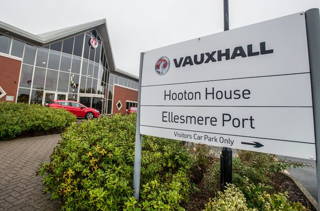
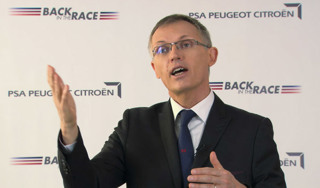
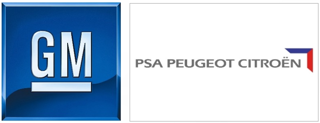
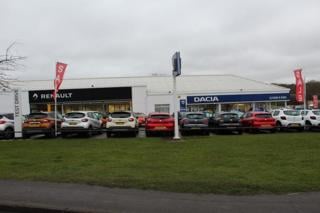
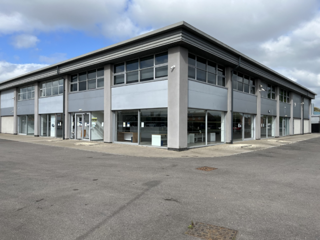












Iceage - 06/03/2017 16:51
The favorite old phrase that comes to mind is... 'Two drowning men dont make a swimmer'